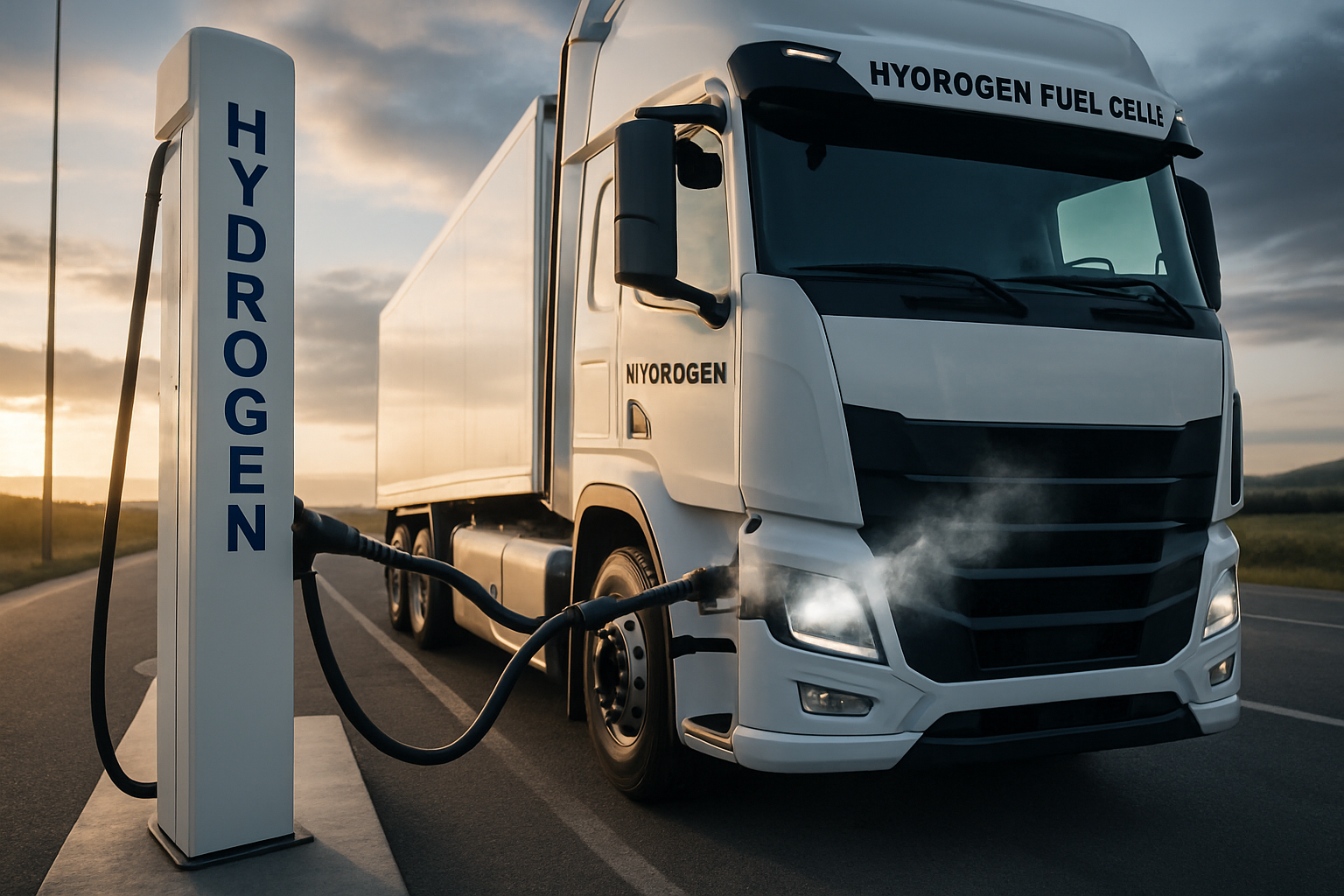Hydrogen Fuel Cells: The Silent Revolution in Long-Haul Trucking
Imagine a world where massive semi-trucks glide silently down highways, emitting nothing but water vapor. This isn't science fiction—it's the promise of hydrogen fuel cell technology in long-haul trucking. As the automotive industry grapples with environmental concerns, hydrogen emerges as a potential game-changer for heavy-duty vehicles, offering a blend of zero emissions, quick refueling, and impressive range.

How Hydrogen Fuel Cells Work in Trucks
At the heart of a hydrogen fuel cell truck is a remarkable piece of engineering. The fuel cell stack combines hydrogen from onboard tanks with oxygen from the air, producing electricity to power the vehicle’s electric motors. This process is incredibly efficient and produces only water as a byproduct. The system is complemented by a small battery pack that assists with power delivery and regenerative braking, optimizing overall efficiency.
The Benefits: Beyond Zero Emissions
The advantages of hydrogen fuel cells in trucking extend far beyond environmental considerations. These vehicles offer near-silent operation, reducing noise pollution in urban areas and improving driver comfort on long hauls. The quick refueling time—comparable to diesel—means less downtime for fleet operators. Additionally, the high energy density of hydrogen allows for ranges that can exceed 600 miles on a single fill, matching or surpassing many diesel trucks.
Challenges on the Road Ahead
Despite its promise, the adoption of hydrogen fuel cell technology in trucking faces significant hurdles. The most pressing is the lack of refueling infrastructure. While electric charging stations are becoming increasingly common, hydrogen filling stations remain scarce. The production and transportation of hydrogen also present challenges, as current methods can be energy-intensive and costly. However, advancements in green hydrogen production, using renewable energy sources, are showing promise in addressing these concerns.
Industry Momentum: Major Players Take the Wheel
Several major truck manufacturers are investing heavily in hydrogen fuel cell technology. Companies like Daimler, Volvo, and Toyota are developing and testing fuel cell trucks, with some models already entering commercial service in pilot programs. These early adopters are paving the way for wider acceptance, working closely with energy companies to establish the necessary refueling networks.
The Economics of Hydrogen Trucking
While the initial costs of hydrogen fuel cell trucks are currently higher than their diesel counterparts, the long-term economics are becoming increasingly favorable. Lower maintenance costs, potential fuel savings, and government incentives for clean transportation are shifting the balance. As production scales up and technology improves, the total cost of ownership for hydrogen trucks is expected to become competitive with traditional options.
Regulatory Landscape: Steering Toward a Hydrogen Future
Governments worldwide are recognizing the potential of hydrogen in decarbonizing heavy transport. Policies supporting the development of hydrogen infrastructure and offering incentives for clean vehicles are accelerating the transition. In regions like California and the European Union, stringent emissions regulations are further driving interest in hydrogen as a viable solution for long-haul trucking.
The Road Ahead: Integrating Hydrogen into the Trucking Ecosystem
The success of hydrogen fuel cell trucks will depend on more than just technological advancements. It requires a holistic approach, integrating these vehicles into the broader trucking ecosystem. This includes training mechanics, developing safety protocols, and educating fleet managers on the benefits and operational differences of hydrogen-powered vehicles. As the industry adapts, we may see innovative business models emerge, such as hydrogen leasing programs or pay-per-mile services.
A Hydrogen-Powered Horizon
The journey toward widespread adoption of hydrogen fuel cells in long-haul trucking is just beginning, but the potential is enormous. As technology advances, infrastructure expands, and costs decrease, we may be witnessing the early stages of a profound shift in how goods are transported across continents. The silent revolution of hydrogen fuel cells in trucking offers a glimpse into a cleaner, more efficient future for the transportation industry—one where the rumble of diesel engines is replaced by the quiet hum of electric motors, powered by the most abundant element in the universe.





